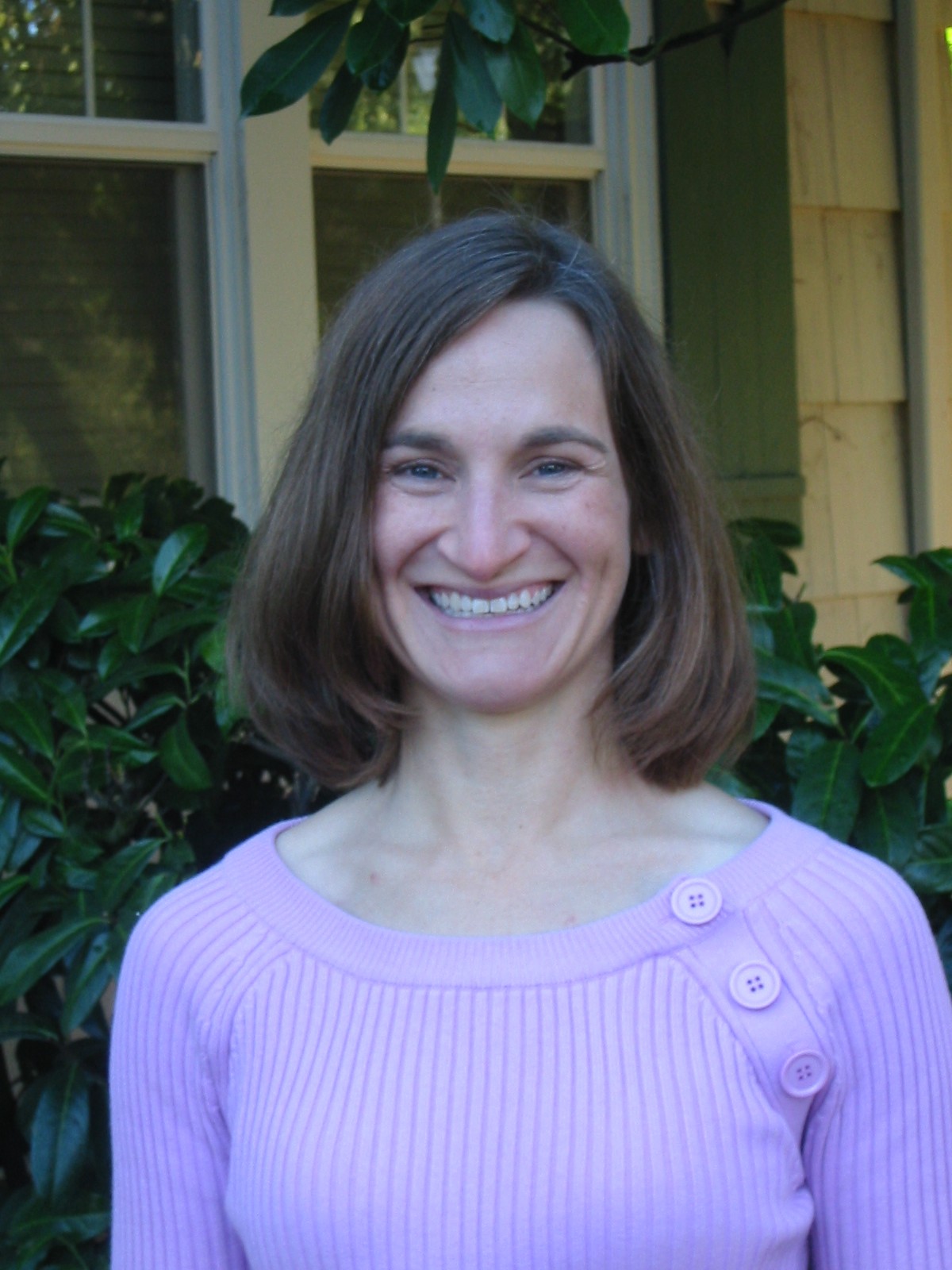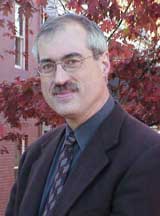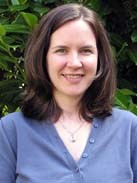Core Program Faculty
Cindy M. Anderson, Ph.D. (West Virginia
University, 1999). Associate Professor of School Psychology, Department Head - Special Education and Clinical Sciences Department.
 Background: Dr. Anderson joined the faculty at University of Oregon in 2005, after spending six years on the faculty in the Behavior Analysis program at West Virginia University. She is a graduate of an APA accredited program in Psychology and holds psychology licensure in Oregon and West Virginia. Background: Dr. Anderson joined the faculty at University of Oregon in 2005, after spending six years on the faculty in the Behavior Analysis program at West Virginia University. She is a graduate of an APA accredited program in Psychology and holds psychology licensure in Oregon and West Virginia.
Current Activities: Dr. Anderson serves as the Department Head of Special Education and Clinical Sciences. She directs a research team focused on interventions for children with challenging behavior within the context of school-wide positive behavior support and applied behavior analysis. Dr. Anderson is on the editorial board for the Journal of Applied Behavior Analysis, the Behavior Analyst, Journal of Positive Behavior Interventions and Supports, and Journal of School Psychology. She currently directs a federally-funded project focused on assisting schools in the implementation of sustainable and effective interventions for preventing the development and exacerbation of problem behavior.
Teaching
Interests: Behavioral Assessment, Behavioral
Consultation, Interventions for Child Behavior Disorders,
Behavioral Theory.
Research
Interests: Prevention, school-based interventions for behavior disorders, translation of mental health research from clinical settings to school-based settings, application of behavior analysis to education, systems-change in education
Roland H. Good III, Ph.D. (Pennsylvania
State University, 1985). Associate Professor of School
Psychology.
 |
Background: Dr. Good is a graduate of an APA and
NASP-accredited program in School Psychology and has 3
years experience as a school psychology practitioner. Dr.
Good also has teaching certification and teaching
experience in both general and special education.
Current Activities: Dr. Good heads a research
team investigating various aspects of the Dynamic
Indicators of Basic Early Literacy Skills. He has been
at the University of Oregon since 1988. He has served on
the editorial boards for School Psychology Review,
School Psychology Quarterly, and The Journal of Special
Education.
|
Teaching
Interests: Tests and Measurement in Education,
Statistics, Research Design, and Psychoeducational Assessment.
Research
Interests:
Dynamic indicators of basic early literacy skills, assessment
of and interventions for academic learning problems, and
assessment in cross-cultural context.
Laura Lee McIntyre , Ph.D. (University of California-Riverside, 2003). Associate Professor of School Psychology, Director of the UO School Psychology Program.
 Background: Dr. McIntyre joined the faculty at the University of Oregon after spending six years on the faculty in school psychology at Syracuse University and in the Center for Development, Behavior, and Genetics, a program in Pediatrics at SUNY Upstate Medical University. Dr. McIntyre has clinical experience in both hospital (inpatient and outpatient) and school settings. She received her Ph.D. from the University of California-Riverside. Background: Dr. McIntyre joined the faculty at the University of Oregon after spending six years on the faculty in school psychology at Syracuse University and in the Center for Development, Behavior, and Genetics, a program in Pediatrics at SUNY Upstate Medical University. Dr. McIntyre has clinical experience in both hospital (inpatient and outpatient) and school settings. She received her Ph.D. from the University of California-Riverside.
Current Activities: Dr. McIntyre is the Director of the School Psychology Program. Her research team focuses on family-based interventions for preschool-aged children with developmental and behavioral concerns. She is a research scientist at the Child and Family Center and an affiliated faculty member at the University Center for Excellence in Developmental Disabilities. She serves as an Associate Editor for the American Journal on Intellectual and Developmental Disabilities (co-editor of the special section on Evidence Based Practices) and serves on the Executive Council of Division 33 (Intellectual and Developmental Disabilities) of the American Psychological Association. She has received funding from the National Institute of Child Health and Human Development and has received recognition for community service, teaching, and research mentorship.
Teaching Interests: Consultation, assessment, child development and psychopathology.
Research Interests: Early identification and treatment of young children with or at-risk for developmental and behavioral disorders; transition to kindergarten; family well-being and parent-professional partnerships.
Angela
Whalen, Ph.D. (University of Oregon,
2002). Instructor and Practicum Coordinator.
 Background: Dr. Whalen joined the UO faculty in 2003, after having previously worked as a school psychologist/staff development trainer in Iowa and as a school psychologist and literacy coach in Washington State. She is a graduate of the University of Oregon's APA and NASP accredited program in School Psychology. Background: Dr. Whalen joined the UO faculty in 2003, after having previously worked as a school psychologist/staff development trainer in Iowa and as a school psychologist and literacy coach in Washington State. She is a graduate of the University of Oregon's APA and NASP accredited program in School Psychology.
Current Activities: Dr. Whalen teaches School Psychology courses, coordinates School Psychology practicum training, and advises School Psychology master's students. As the program's practicum coordinator, Dr. Whalen is responsible for facilitating and supervising all aspects of practicum training in the program, including making student placements, teaching the practicum seminar, providing individual supervision, and working as a liasion between the UO school psychology program and field supervisors. Dr. Whalen is also the Project Coordinator for The Oregon Response to Intervention (RTI) Project, a personnel preparation grant preparing school psychology students with expertise in RTI theory and practice.
Teaching
and Research Interests: Response to Intervention (RTI), Educational/Academic Assessment, Instructional Consultation, School Psychology Practicum.
Affiliated
Special Education Doctoral Faculty
Along with the
UO's Special Education program, our program is located in
the Area of Special Education within the College of Education.
The two programs are closely aligned and
have a long history of collaboration. By special arrangement
between the two programs, the doctoral faculty of the special
education program have special status as affiliated faculty
within the school psychology program, and may work with our
students as dissertation co-chairs, co-advisors, and members
of comprehensive examination committees. Because the UO special
education program is recognized as one of the best graduate
programs in special education in the nation (ranked 4th in
the nation in the 2006 U.S. News and World Report ratings),
this arrangement provides a tremendous opportunity for our
student to work with a larger cadre of internationally-recognized
experts in the field. The affiliated special education doctoral
faculty include:
Richard
W. Albin, Ph.D.
(University of Oregon, 1986). Senior Research Associate and
Associate Professor of Special Education. Research design,
programming and instruction, instructional technology, applied
behavior analysis.
Brigid
Flannery, Ph.D. (University of Oregon, 1992). Senior Research
Associate and Associate Professor of Special Education. Transition
for young adults with disabilities, post-secondary education,
positive behavioral support.
Beth Harn,
Ph.D. (University of Oregon, 2000). Assistant Professor of
Special Education. Systems to support effective school-wide
instructional decision making, aligning curriculum,
instruction, and assessment to optimize learner's performance;
prevention and early intervention for students with reading
difficulties, increasing and Improving consultation practices
of school psychologists
Robert
Horner, Ph.D. (University of Oregon, 1978). Professor
of Special Education, Director, Educational and Community
Supports. Functional behavior assessment, school-wide behavior
management, education of students with severe disabilities,
generalization and maintenance of stimulus control.
Edward
J. Kameenui, Ph.D. (University of Oregon 1980). Professor
of Special Education; Director, Institute for the Development
of Educational Achievement. Design of instruction, relationships
between student achievement and instructional design.
Currently on leave from the University of Oregon, working as
Commissioner for Special Education Research, Institute for
Educational Science, U.S. Department of Education.
Christopher
Murray, Ph.D. (University of Washington, 1998). Associate
Professor of Special Education. Secondary special education,
behavior and learning disorders, school-community transition.
Adjunct
and Affiliated Faculty
In addition to
our core faculty and the affiliated special education doctoral
faculty, the following University of Oregon Faculty and community
members regularly contribute time and energy to the School
Psychology Program and students. Through teaching courses,
supervising and facilitating field placements, assisting in
the supervision of student research, and serving on dissertation
and comprehensive examination committees, these faculty make
a tremendous contribution to our program. The following list
includes those adjunct and affiliated faculty who have participated
in our program in these capacities in recent years.
Lew Bank,
Ph.D. (University of California, Los Angeles, 1982).
Research Scientist, Oregon Social Learning Center. Development
and prevention of antisocial behavior and delinquency.
Kelli Cummings, Ph.D. (University
of Oregon, 2004). Adjunct Assistant Professor, UO School
Psychology Program, and Senior Research Associate, Dynamic
Measurement Group. Literacy, educational measurement and
assessment, children's social behavior, research methods and
statistics.
Alex Granzin,
Ph.D. (University of Oregon, 1975). School Psychologist,
Springfield Schools; past president, Oregon School Psychologists
Association. Instructional and behavioral consultation, supervision
of school psychology interns.
Ruth Kaminski,
Ph.D. (University of Oregon, 1992). Courtesy Assistant
Professor, UO School Psychology Program, and member of the
Dynamic Measurement Group. Early childhood; prevention of
social/behavioral and academic problems, innovative assessment
procedures and interventions for preschool-age children and
families
Deborah
Laimon, Ph.D. (University of Oregon, 1994). Psychologist,
EC Cares Early Childhood Center. Early childhood/preschool
school psychology.
Charles
Martinez, Ph.D. (California School of Professional
Psychology at San Diego, 1997). UO Vice Provost for
Diversity and Institutional Equity; Clinical Psychologist and
Senior Research Scientist at the Oregon Social Learning
Center. Behavioral health outcomes for Latino families,
acculturation, prevention science.
Jeffrey
Measelle, Ph.D. (University of California, Berkeley,
1997). Assistant Professor, UO Department of Psychology. Clinical
child psychology, developmental psychopathology, developmental
sociobiology.
Kelly
Powell-Smith, Ph.D. (University of Oregon, 1993). Courtesy
associate Professor, UO School Psychology Program, and Senior
Research Associate Dynamic Measurement Group. Literacy,
educational assessment, consultation, early
childhood school psychology.
John Seeley,
Ph.D. (University of Oregon, 2001). Courtesy Assistant
Professor, UO School Psychology Program, and Research
Scientist, Oregon Research Institute. Prevention, public
health, depression and children and adolescents, measurement
and biostatistics.
Jeffrey
Sprague, Ph.D. (University of Oregon, 1990). Associate
Professor of Special Education and Co-Director, Institute
on Violence and Destructive Behavior. Applied behavior analysis,
severe behavioral disorders, school safety, school violence
prevention, special education teacher training, school-to-work
transition, and social integration.
Randall
Sprick, Ph.D. (University of Oregon, 1979). Educational
Consultant, Teaching Strategies, Inc. Behavior management,
classroom management, staff development.
Bruce Stiller,
Ph.D. (Oregon, 1987). School Psychologist, Eugene
Public Schools. Behavioral consultation, practicum supervision,
and prevention of antisocial behavior.
Elizabeth
Stormshak, Ph.D. (Pennsylvania State University,
1995). Assistant Professor of Counseling Psychology. Developmental
psychopathology, child and family intervention, conduct problems,
peer relations, prevention, child therapy, parenting.
Hill M.
Walker, Ph.D. (University of Oregon, 1967). Professor
Emeritus of Special Education and Co-Director, Institute on
Violence and Destructive Behavior. Director, Center on Human
Development. Behavior management identification and remediation
of child behavior disorders.
|